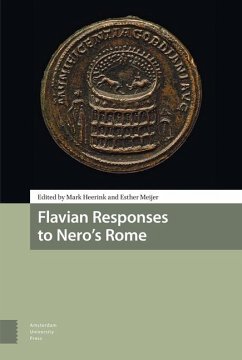Nicht lieferbar

Laura Salah Nasrallah
Gebundenes Buch
Christian Responses to Roman Art and Architecture
The Second-Century Church Amid the Spaces of Empire
Versandkostenfrei!
Nicht lieferbar




Nasrallah argues that early Christian literature addressed to Greeks and Romans is best understood when read alongside the archaeological remains of Roman antiquity.
Laura Salah Nasrallah is Associate Professor of New Testament and Early Christianity at Harvard Divinity School. She is the author of An Ecstasy of Folly: Prophecy and Authority in Early Christianity and co-editor of Prejudice and Christian Beginnings: Investigating Race, Gender, and Ethnicity in Early Christian Studies and From Roman to Early Christian Thessalonik¿: Studies in Religion and Archaeology.
Produktdetails
- Verlag: Cambridge University Press
- Seitenzahl: 350
- Erscheinungstermin: 25. Januar 2010
- Englisch
- Abmessung: 254mm x 183mm x 25mm
- Gewicht: 907g
- ISBN-13: 9780521766524
- ISBN-10: 0521766524
- Artikelnr.: 28112398
Herstellerkennzeichnung
Libri GmbH
Europaallee 1
36244 Bad Hersfeld
gpsr@libri.de
Für dieses Produkt wurde noch keine Bewertung abgegeben. Wir würden uns sehr freuen, wenn du die erste Bewertung schreibst!
Eine Bewertung schreiben
Eine Bewertung schreiben
Andere Kunden interessierten sich für












